Economics > AQA Question Papers > A-level ECONOMICS Paper 1 Markets and Market Failure. EXAM QUESTIONS AND ANSWERS (All)
A-level ECONOMICS Paper 1 Markets and Market Failure. EXAM QUESTIONS AND ANSWERS
Document Content and Description Below
EITHER Context 1 Total for this context: 40 marks The circular economy Study Extracts A, B and C, and then answer all parts of Context 1 which follow. Extract A Figure 1: Global plastic productio... n and disposal, 1950–2015, million tonnes Figure 2: Generation of waste and GDP per capita, 2016, selected countries Source: Data from ourworldindata.org, 2018 Source: World Bank, 2018 Extract B: The global economy needs to become more circular Of the 84 billion tonnes of materials produced each year by the global economy, barely 9% are reused. The United Nations (UN) suggests that better use of resources could add $2 trillion to the global economy by 2050. Environmental groups argue for a ‘circular’ economy, an economic system aimed at minimising waste, making the most of scarce resources and reusing precious raw materials. However, if products last longer, it may seriously damage demand in sectors such as fossil fuels, minerals and agriculture. Manufacturers’ sales would fall, as would the need for shipping and other transport. Currently, many companies intentionally make it difficult to repair their products in order to increase sales. This is both economically inefficient and environmentally foolish; it imposes costs on the environment even though it may make sense for individual companies. Would a circular economy result in workers losing their jobs? Manufacturing jobs are likely to come under pressure, but new jobs would be created. According to one study, waste disposal generates just 0.1 jobs per 1000 tonnes, compared with two jobs from recycling the same amount. The environment would benefit, with fewer mines, more trees and less need for landfill and incineration. Recycling aluminium saves 95% of energy compared with creating new metal. The comparable savings are 88% for plastic, 60% for steel and paper, and 38% for glass. By 2035, all European Union (EU) states will be required by law to recycle 65% of their waste, compared to an average of 40% today. But populations grow. By 2050, the world will have 2 billion more consumers, increasing the pressure on the environment. 1 5 10 15 Source: News reports, 20183 IB/M/Jun20/7136/1 Turn over ► Extract C: China bans imports of waste While rich countries are cleaning up at home, they are exporting their ‘disposable’ lifestyle around the world, by sending their waste to developing countries. Many developing countries are now beginning to resist this. In 2018, a huge shock hit the global recycling industry. China, the world’s biggest waste importer, stopped accepting recycled plastic and paper from abroad, and limited imports of cardboard. Previously, over 50% of such waste was transported to China each year. China plans to introduce bans on most other waste imports. The Chinese ban removed the third part of the ‘collect, sort, export’ system on which developed economies rely. Alternatives are scarce. Incinerators and landfill will take some of the surplus waste, but the capacity of both is limited. Landfill is gradually being regulated out of existence in many places, including the EU. High labour costs make hiring enough human sorters to deal with waste volumes very expensive. Automation could, in time, sort some of the surplus waste, but innovation has been slow. Although China has disrupted the whole global waste trade, many experts see some benefits in forcing rich countries to rethink. The ban has given a boost to some entrepreneurs. Online marketplaces for recycled plastics, metal and paper have grown rapidly. Recycled materials now flow to the highest bidder and hence to the highest-value use. However, such operations cannot compensate quickly for the Chinese ban. Many environmental economists suggest that making firms pay for the costs of landfill associated with their products, or taxing raw material inputs, will be necessary to ensure a sustainable future for all. [Show More]
Last updated: 1 year ago
Preview 1 out of 8 pages
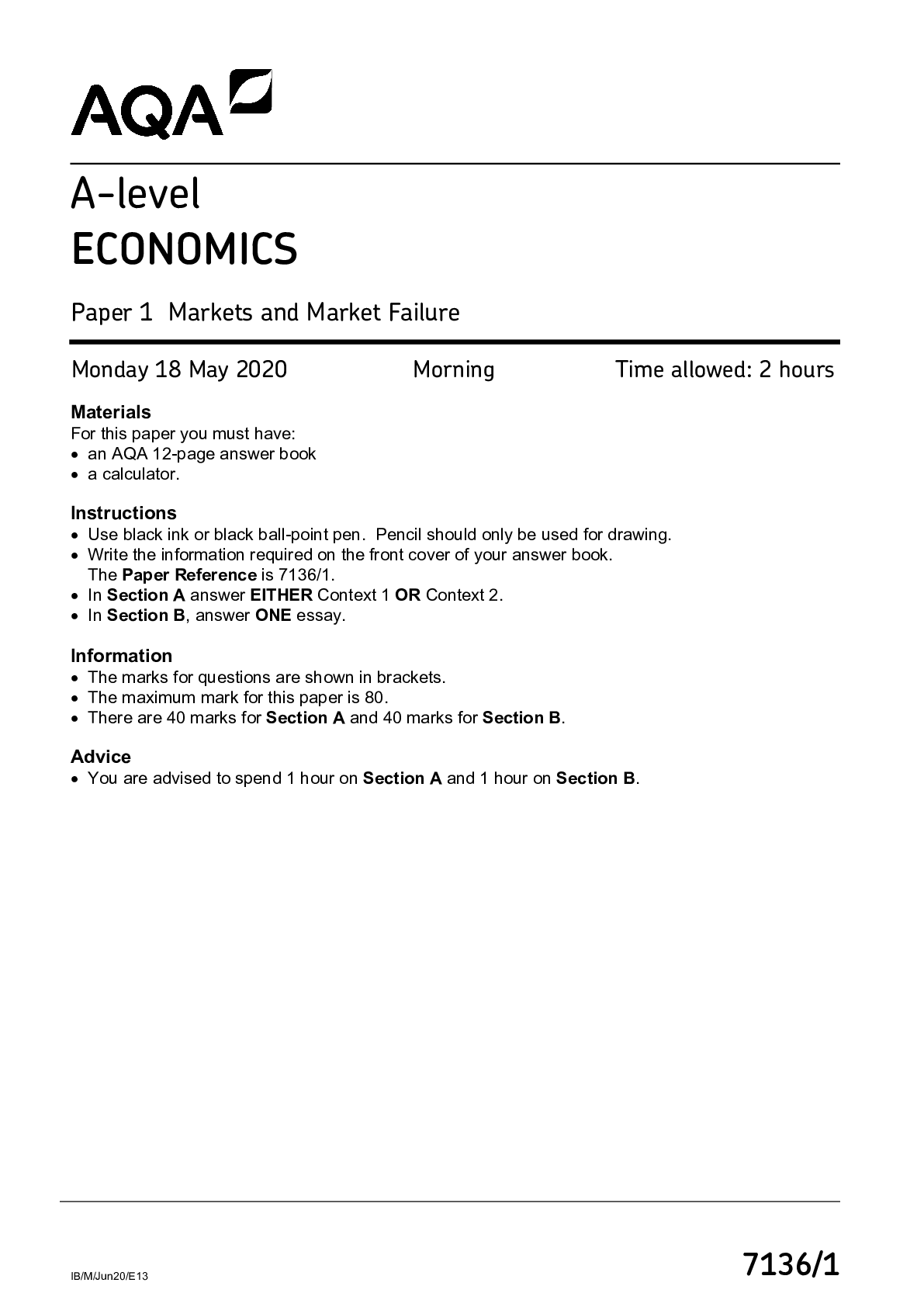
Reviews( 0 )
Document information
Connected school, study & course
About the document
Uploaded On
May 20, 2022
Number of pages
8
Written in
Additional information
This document has been written for:
Uploaded
May 20, 2022
Downloads
0
Views
109


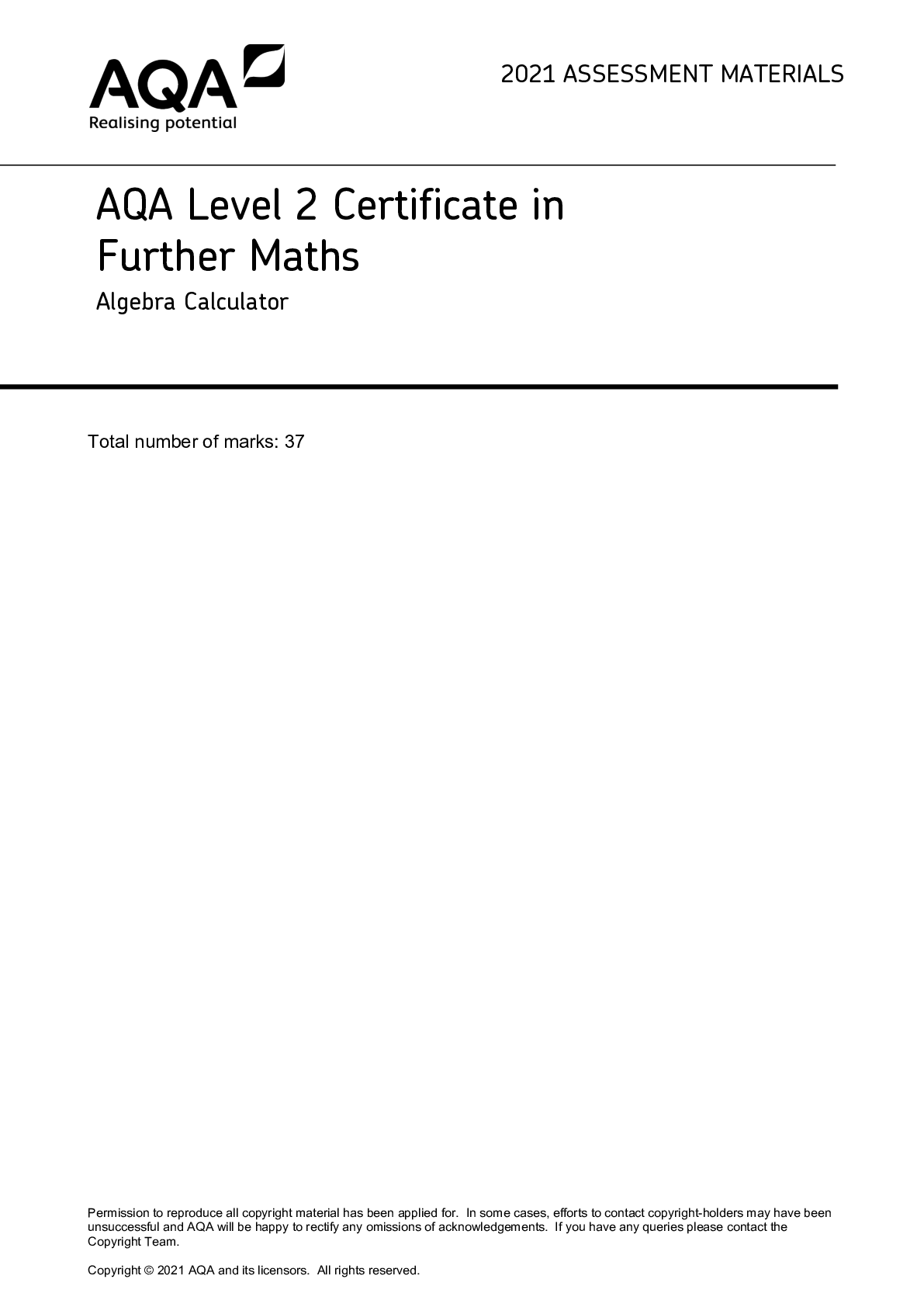
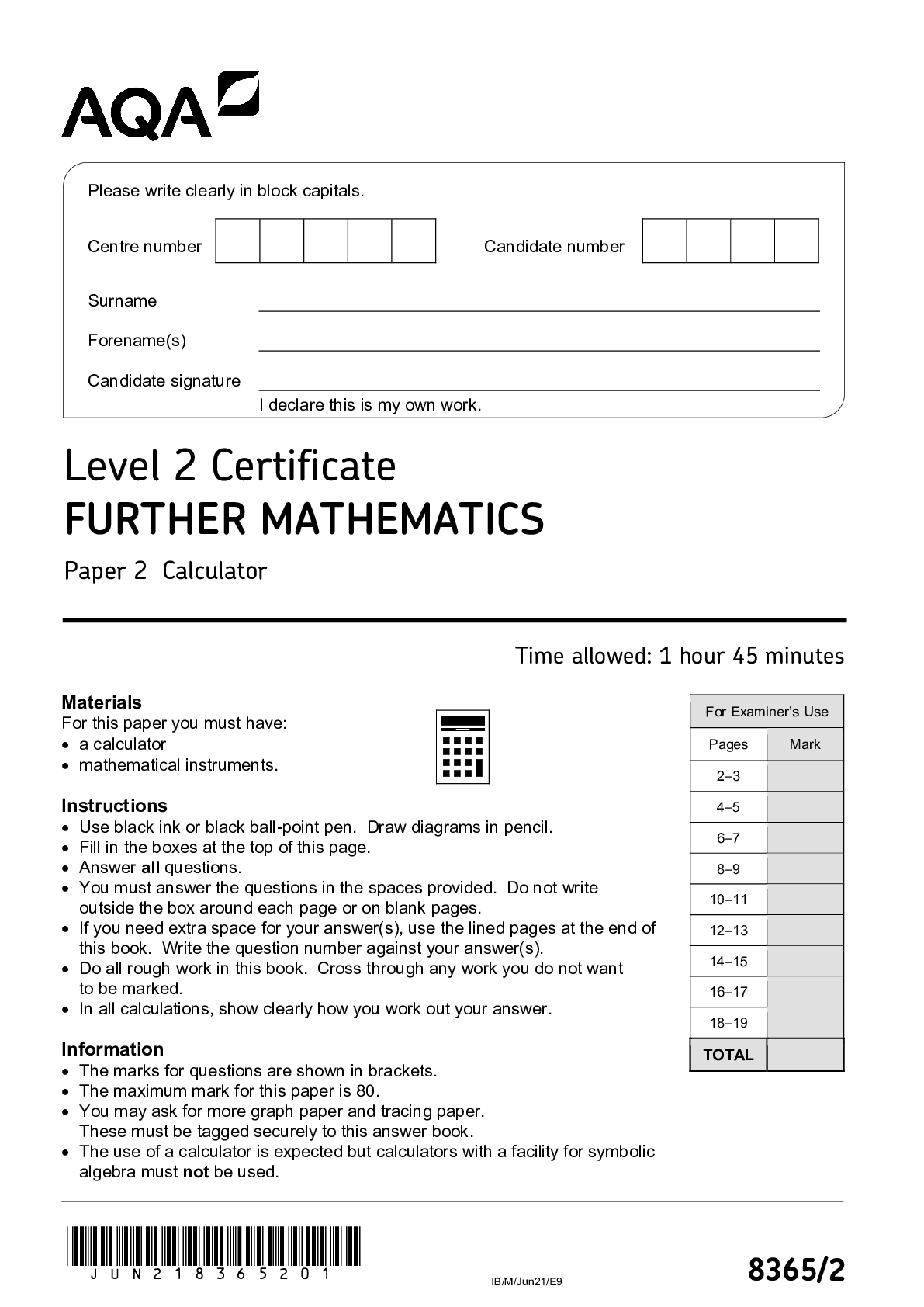
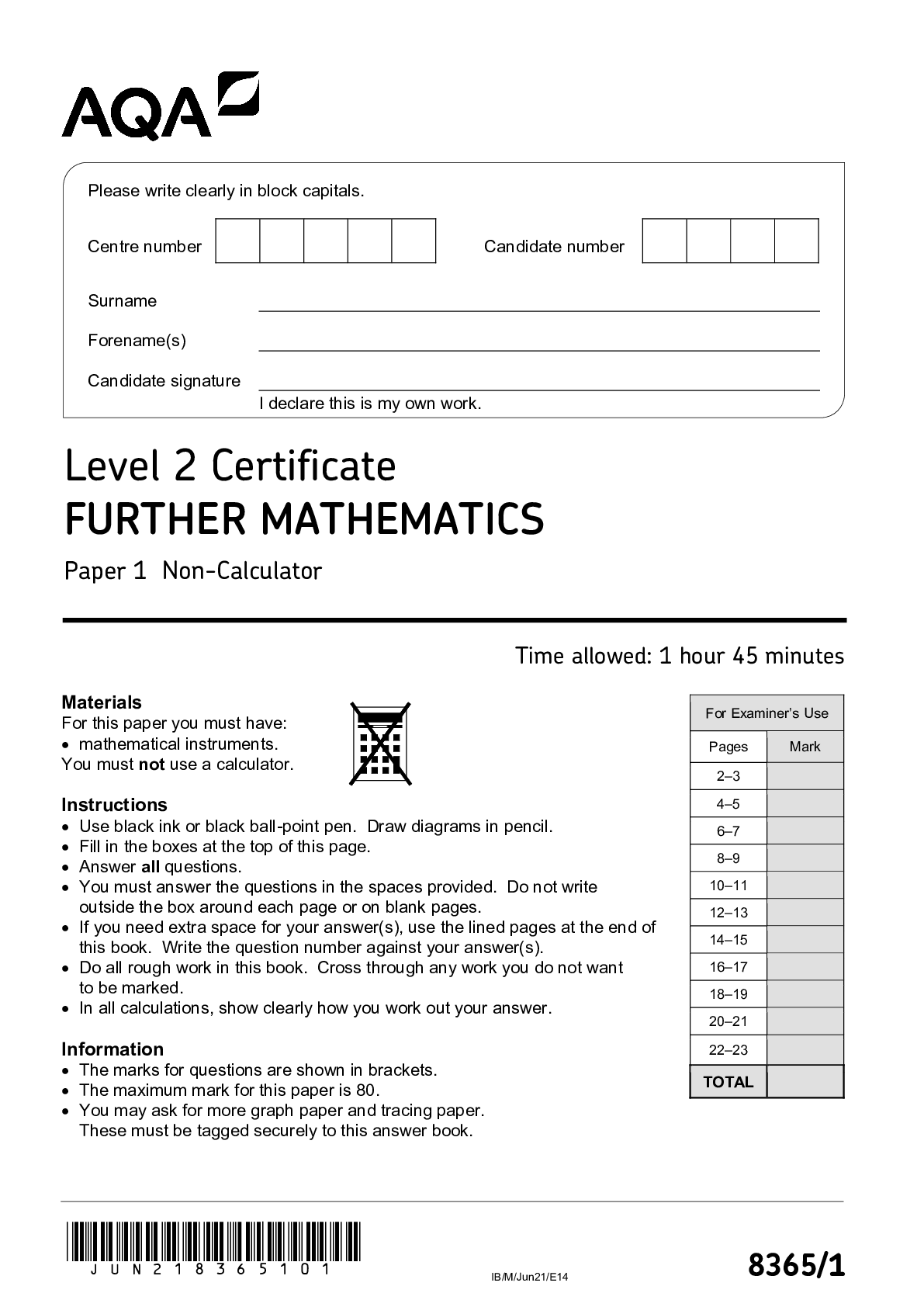
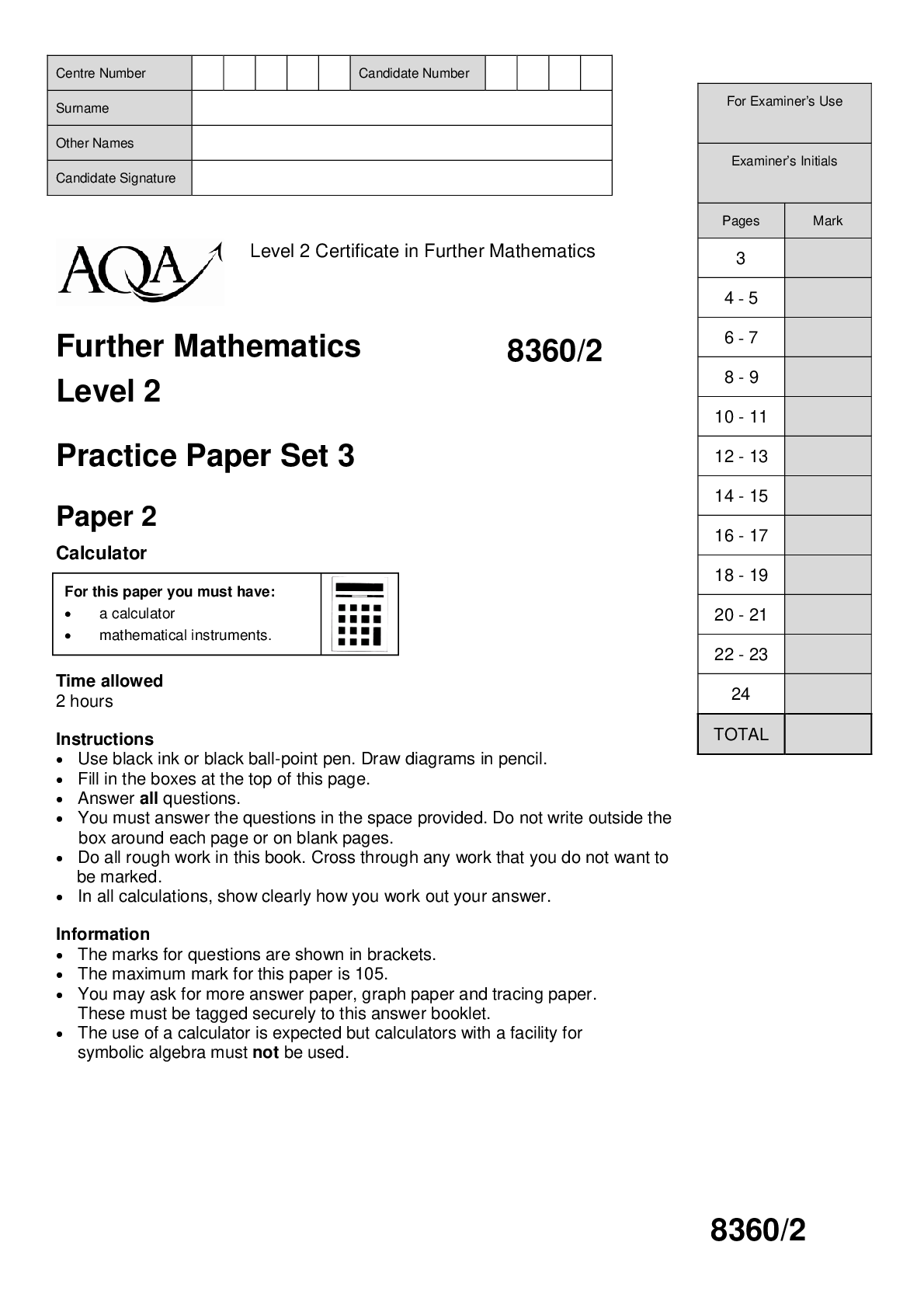

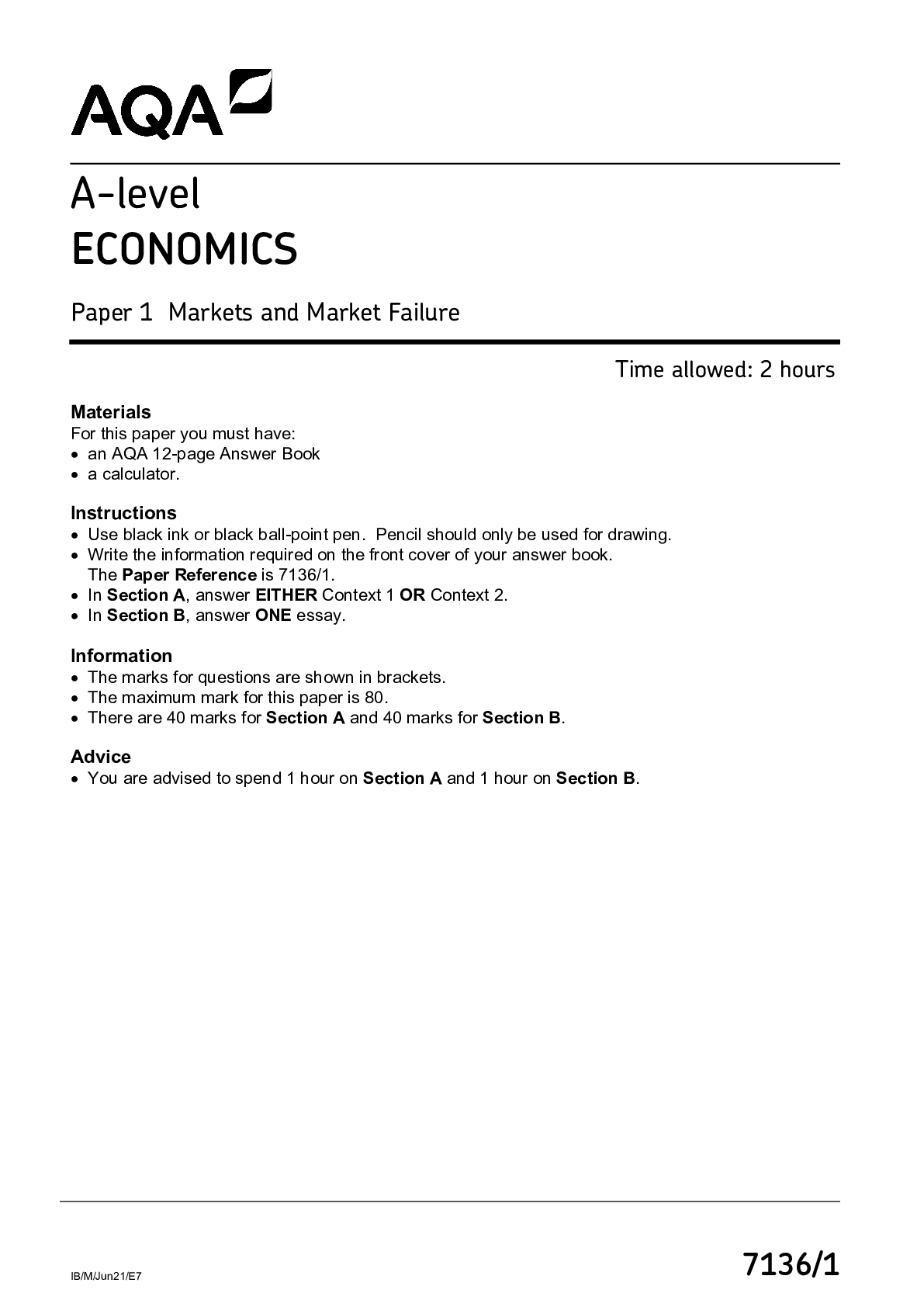
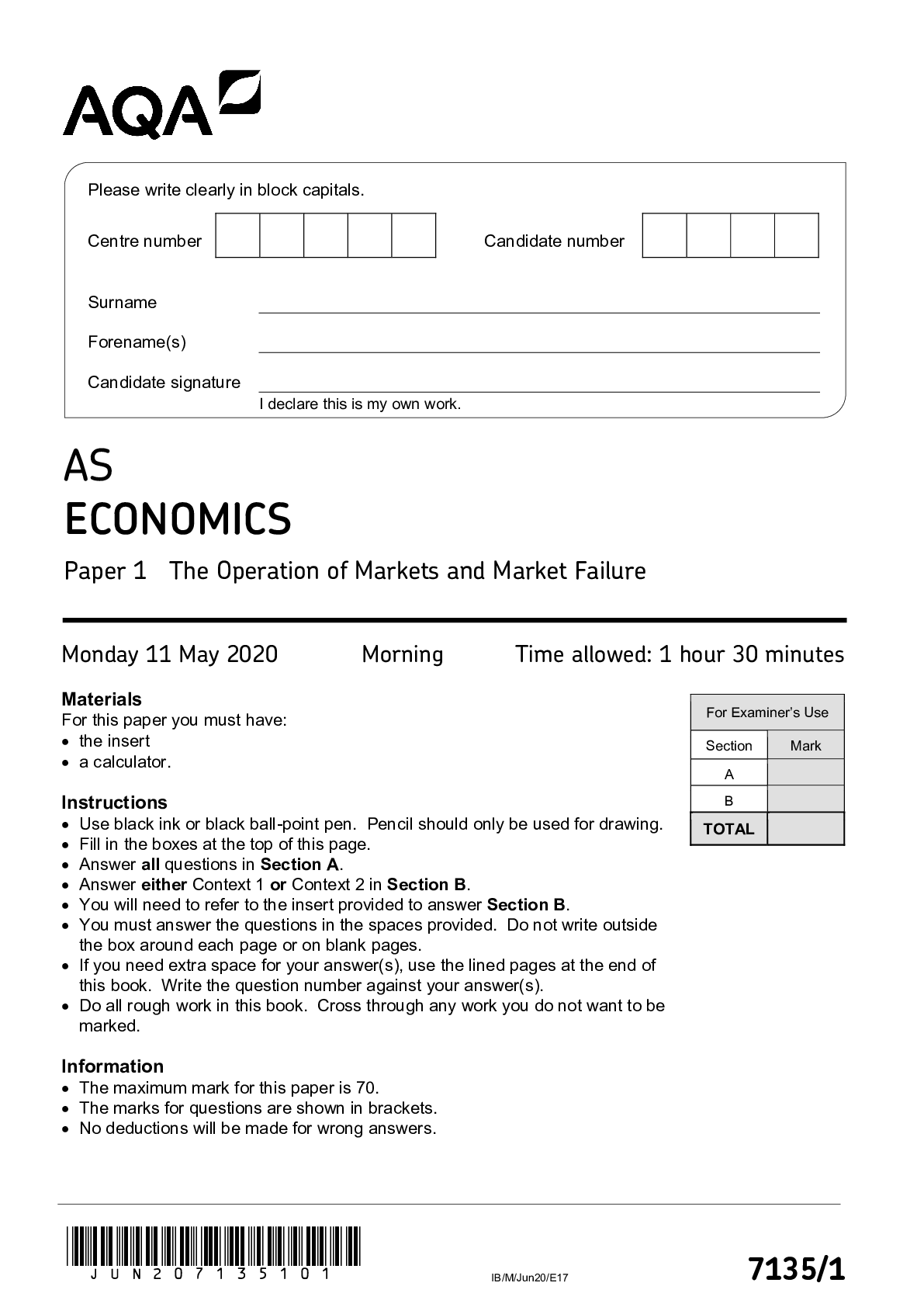
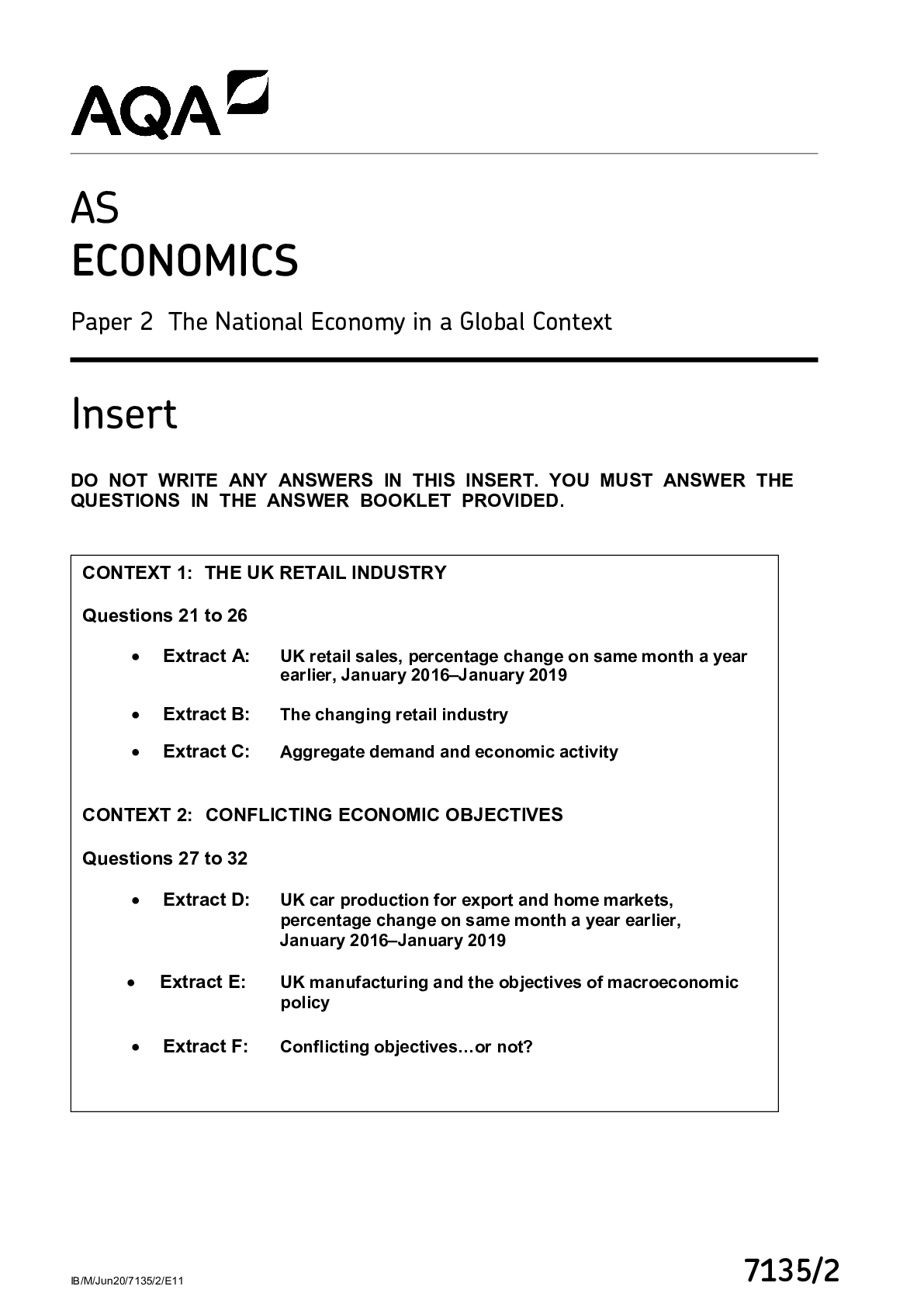

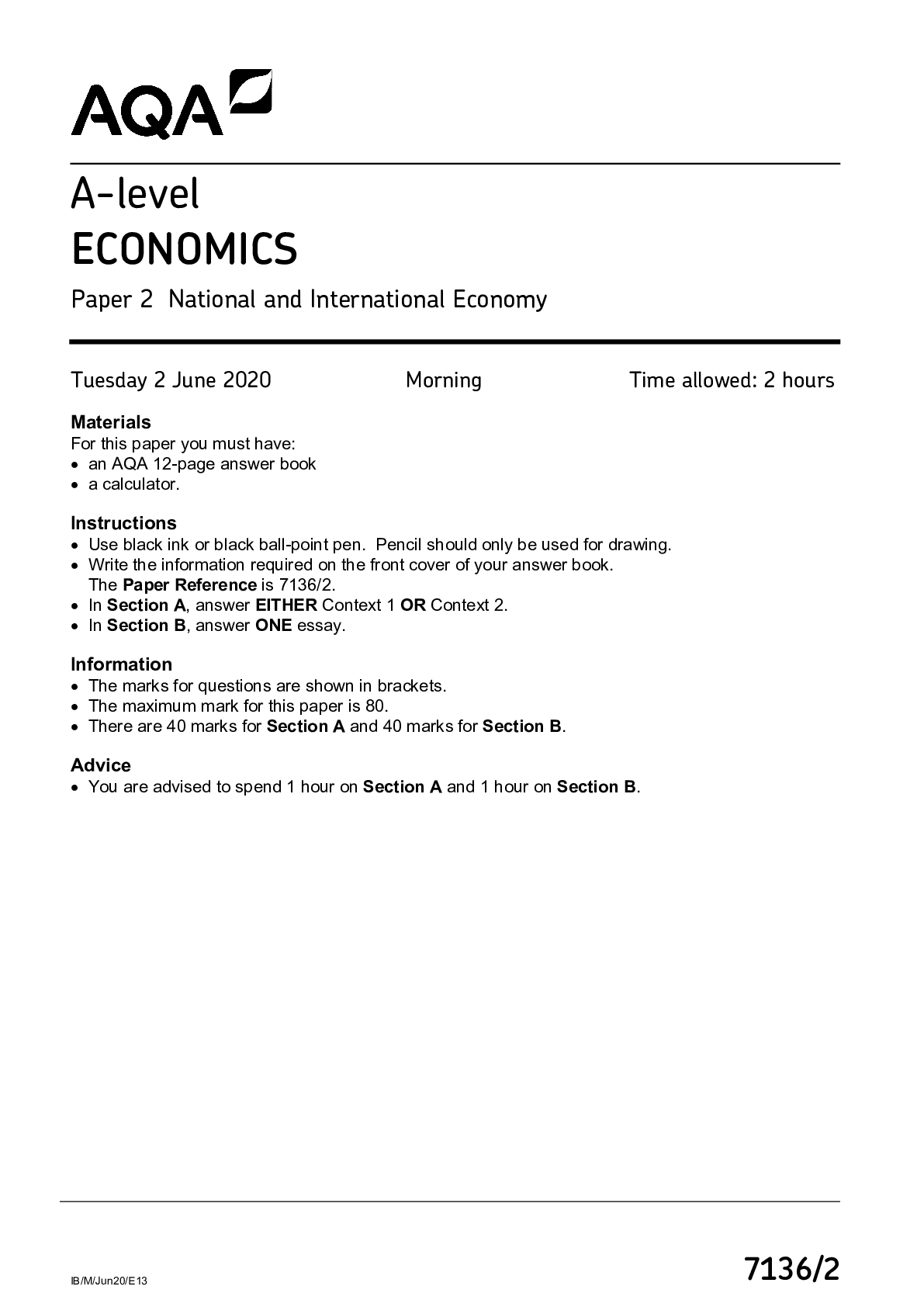
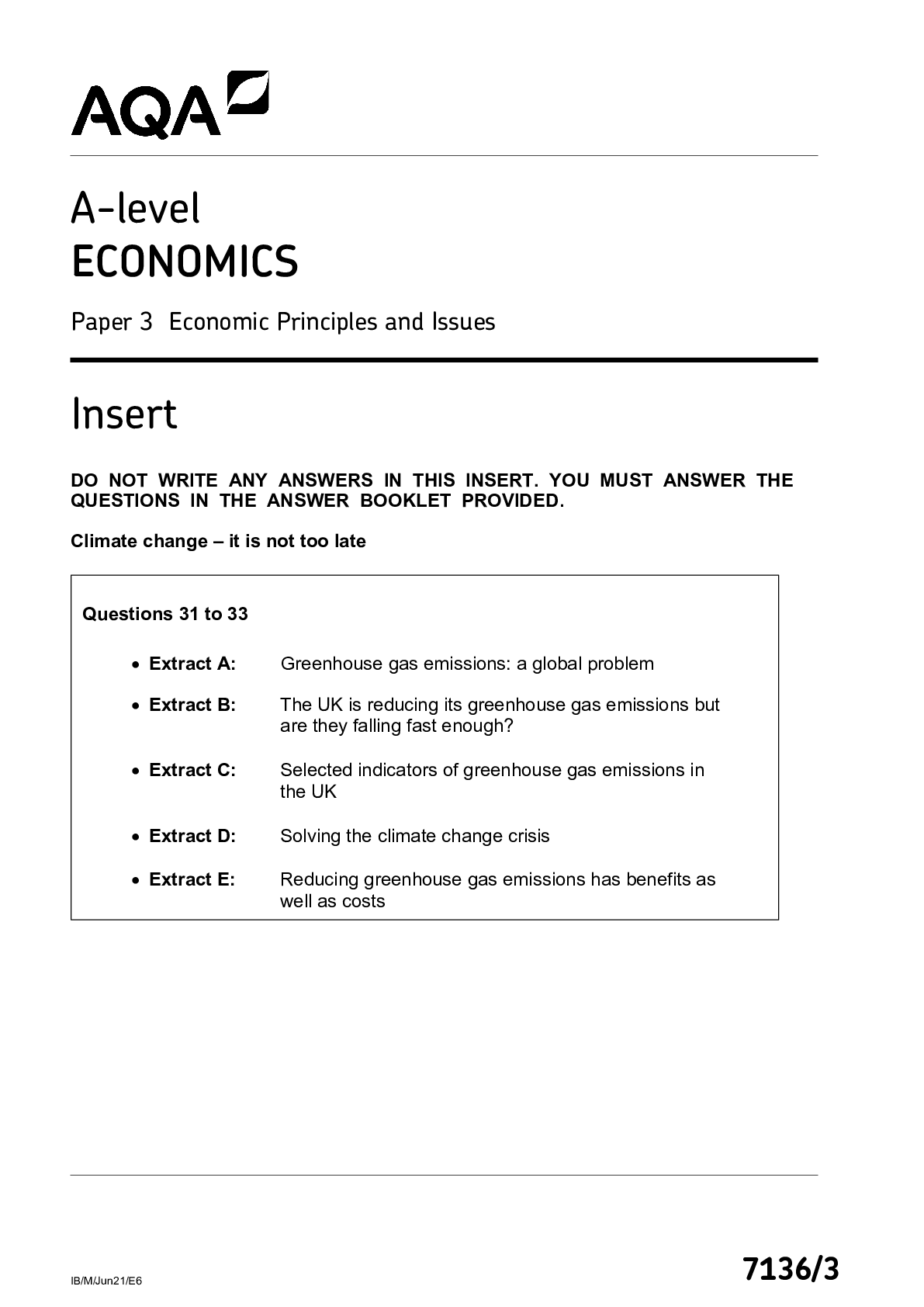
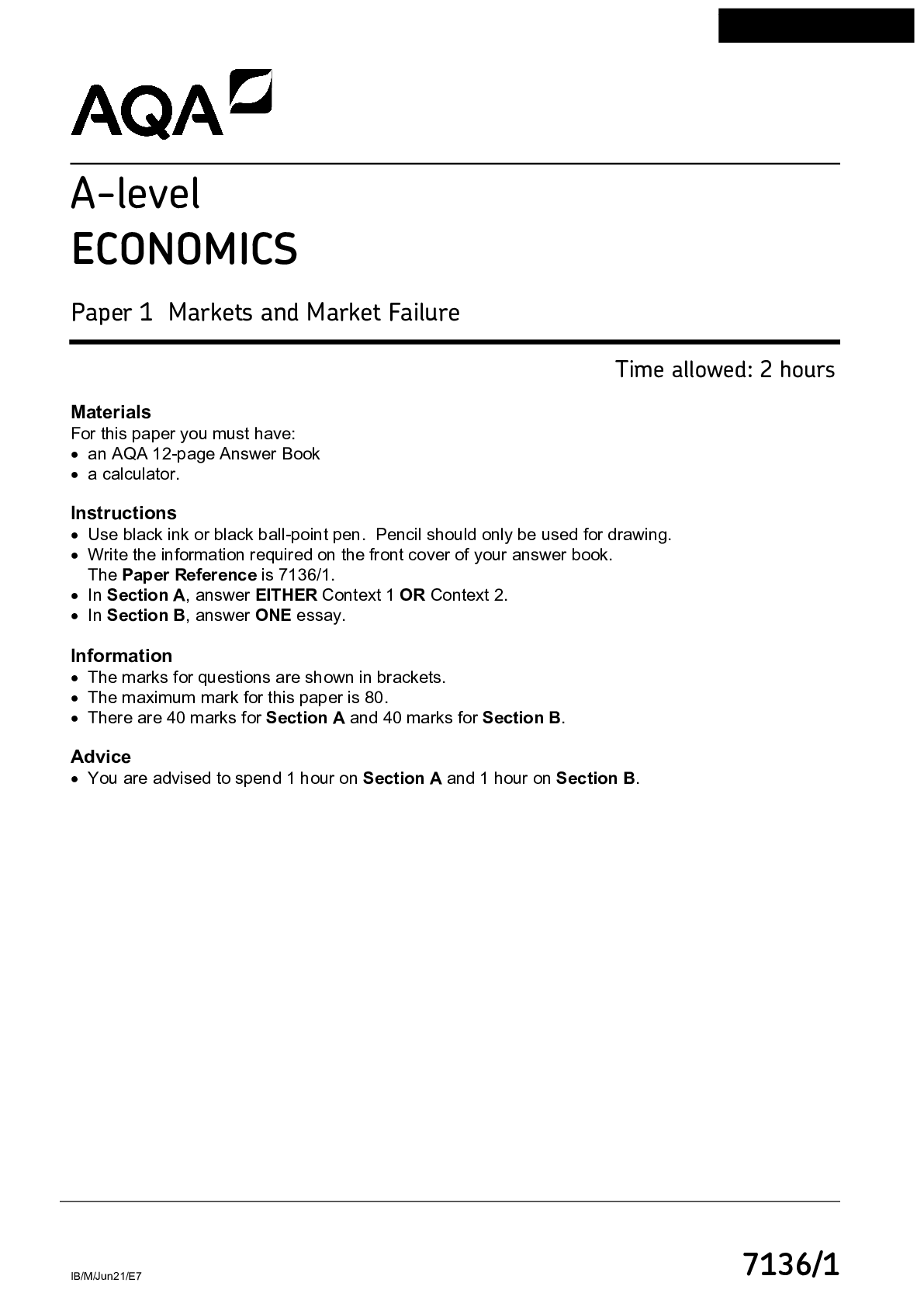
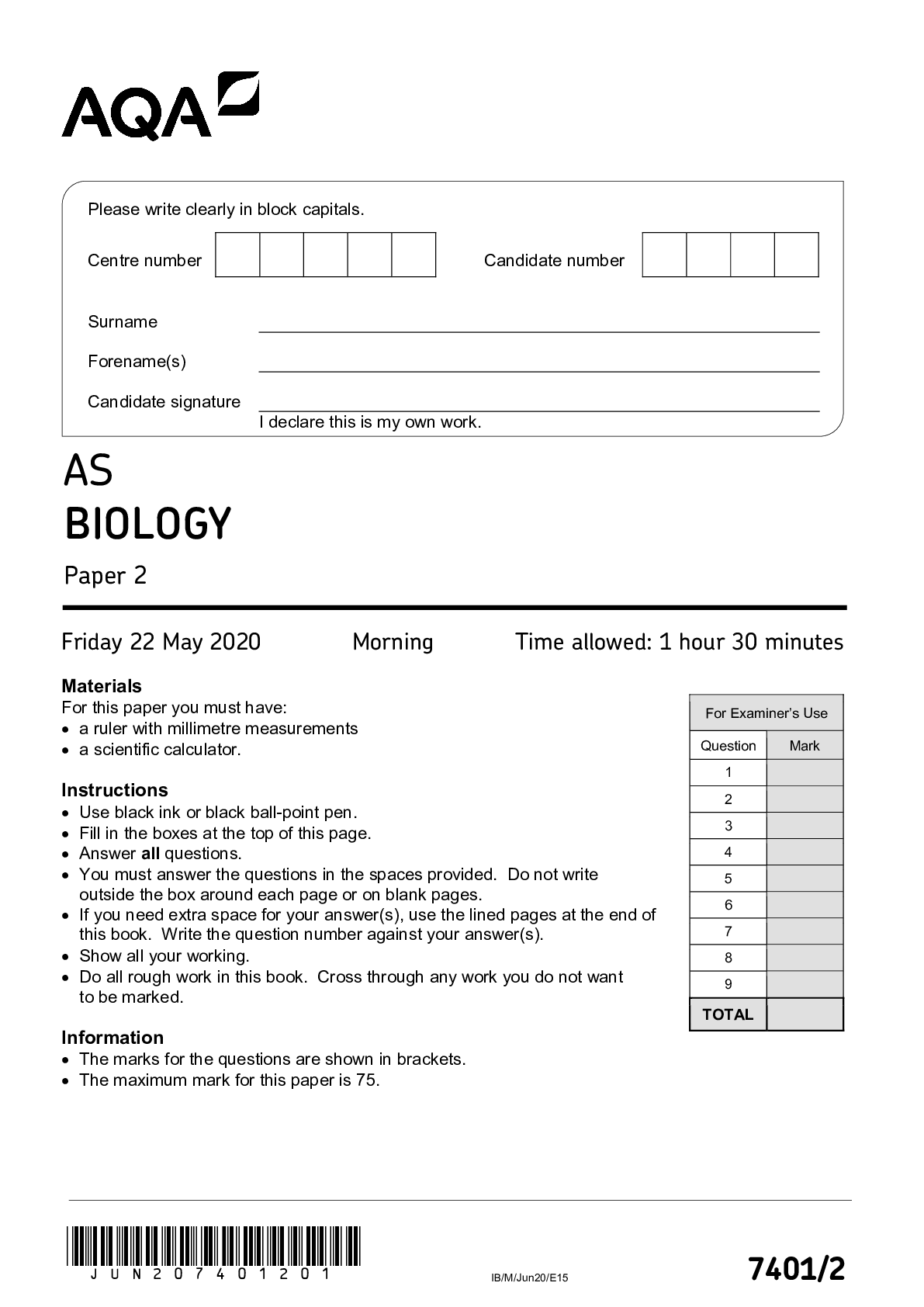
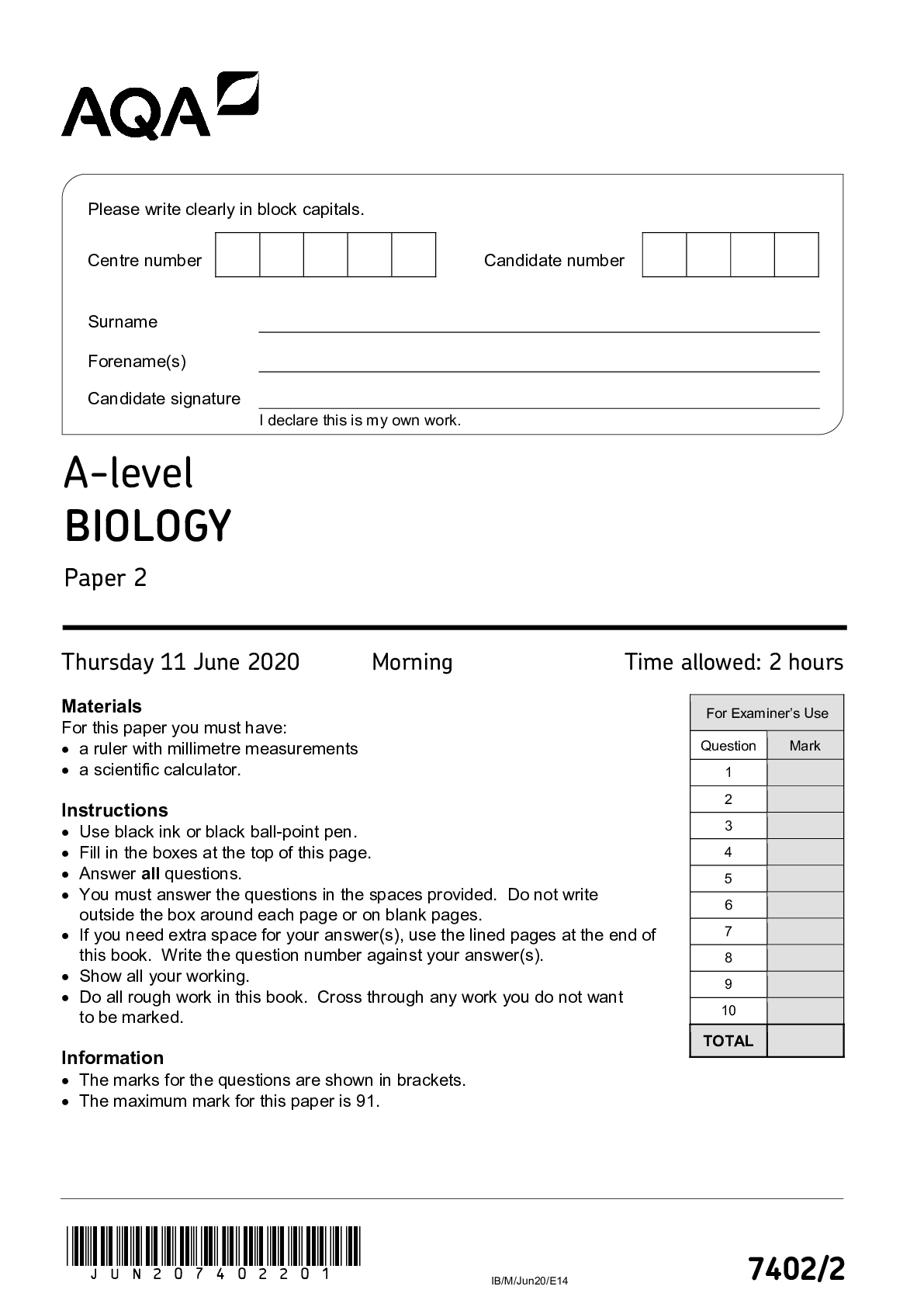
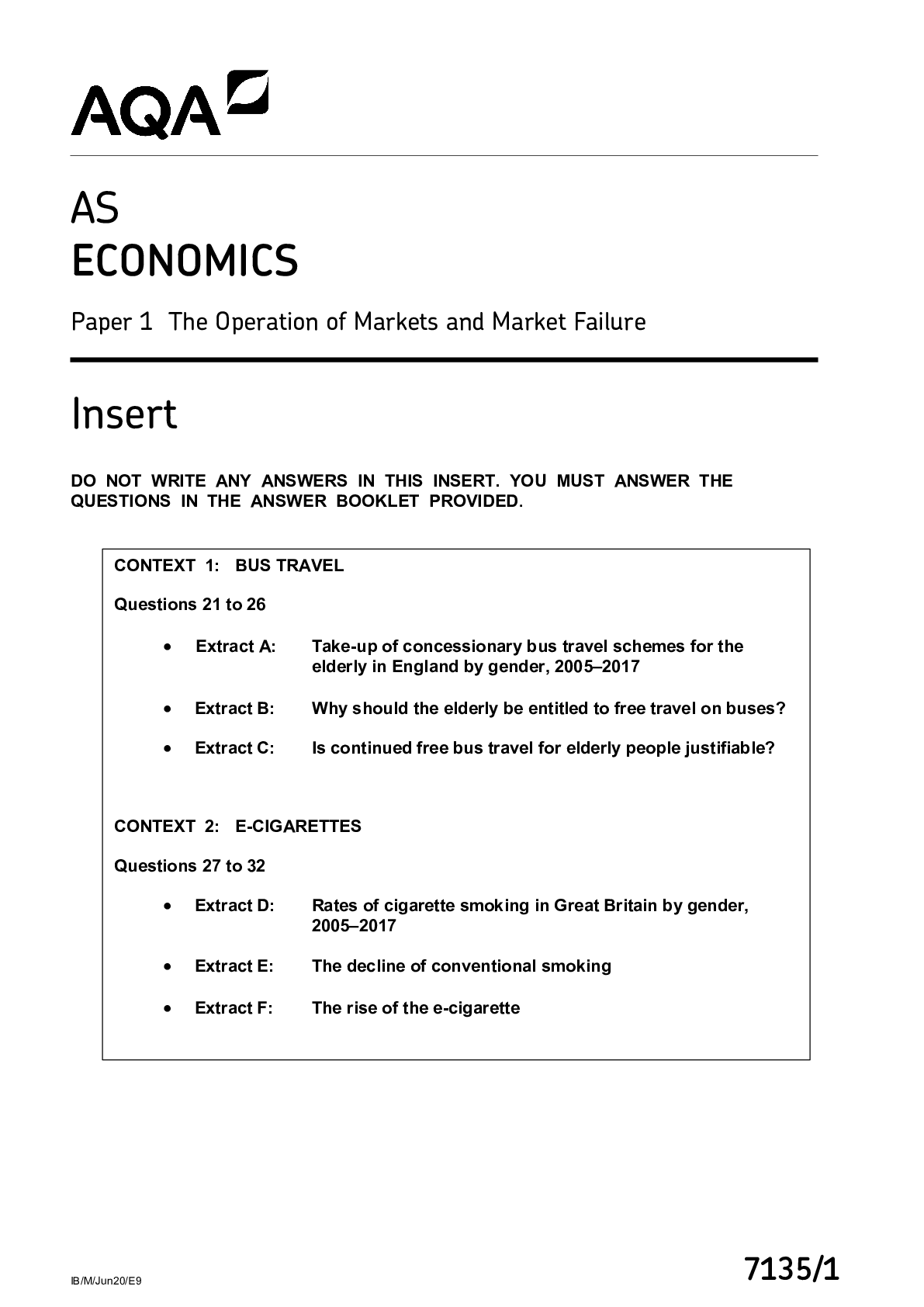
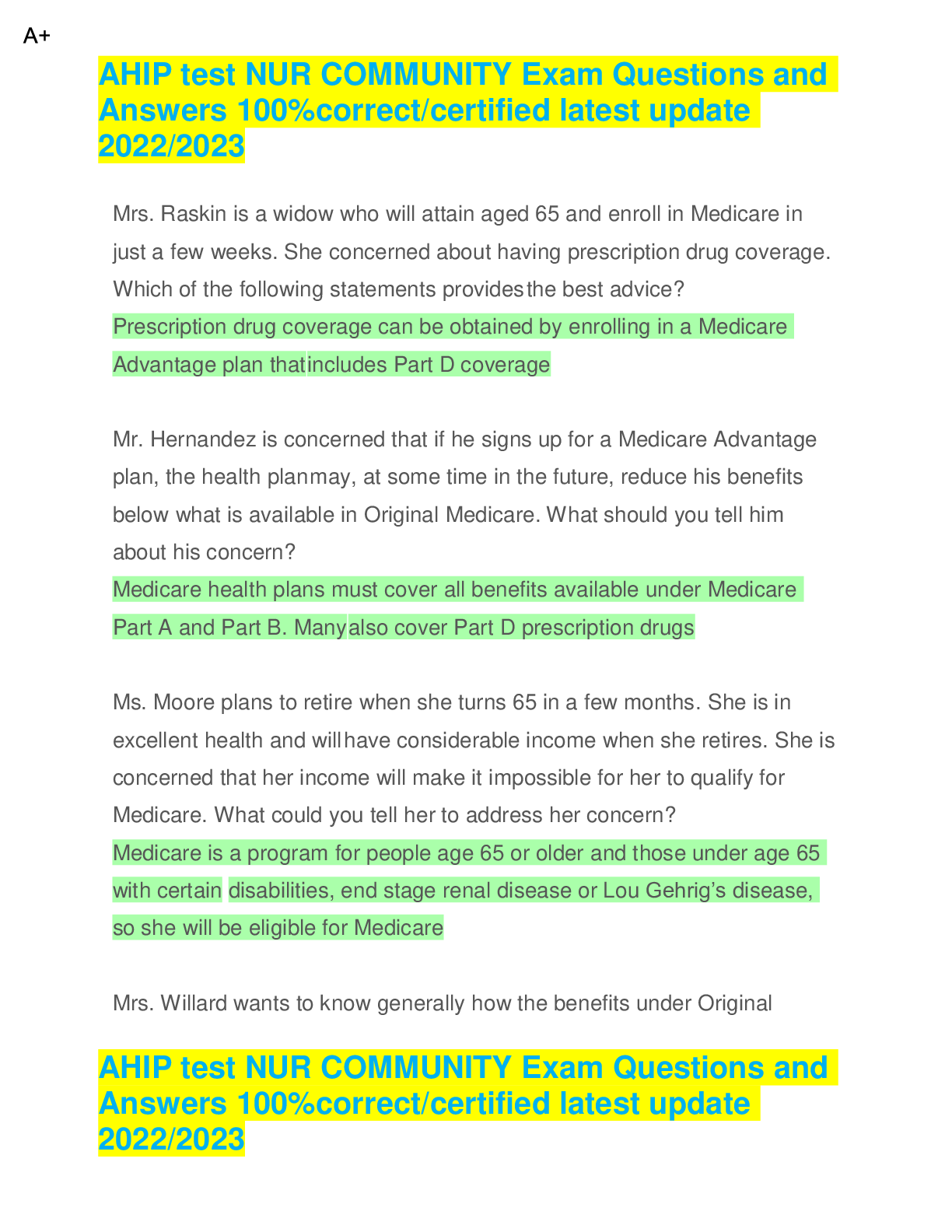
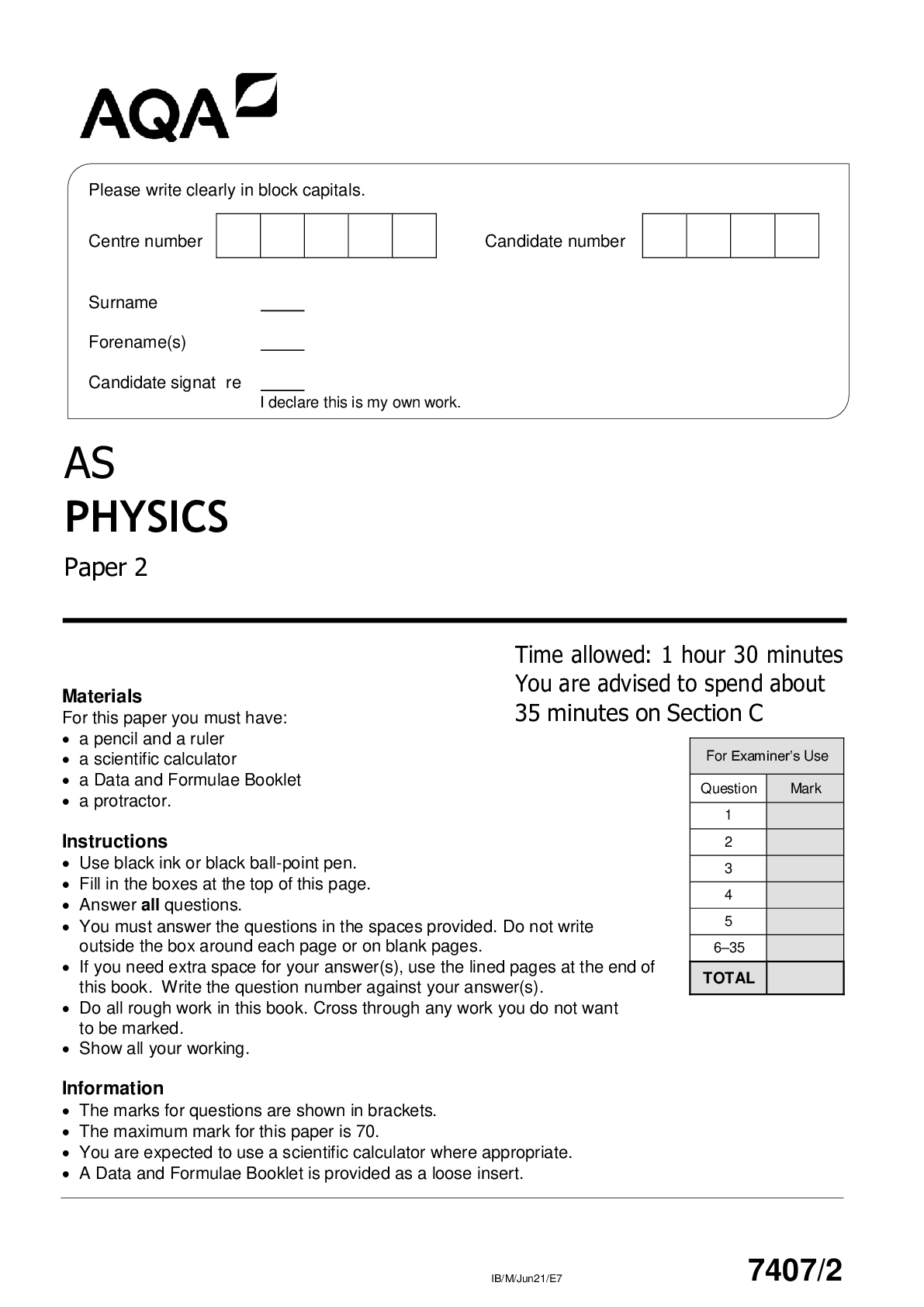
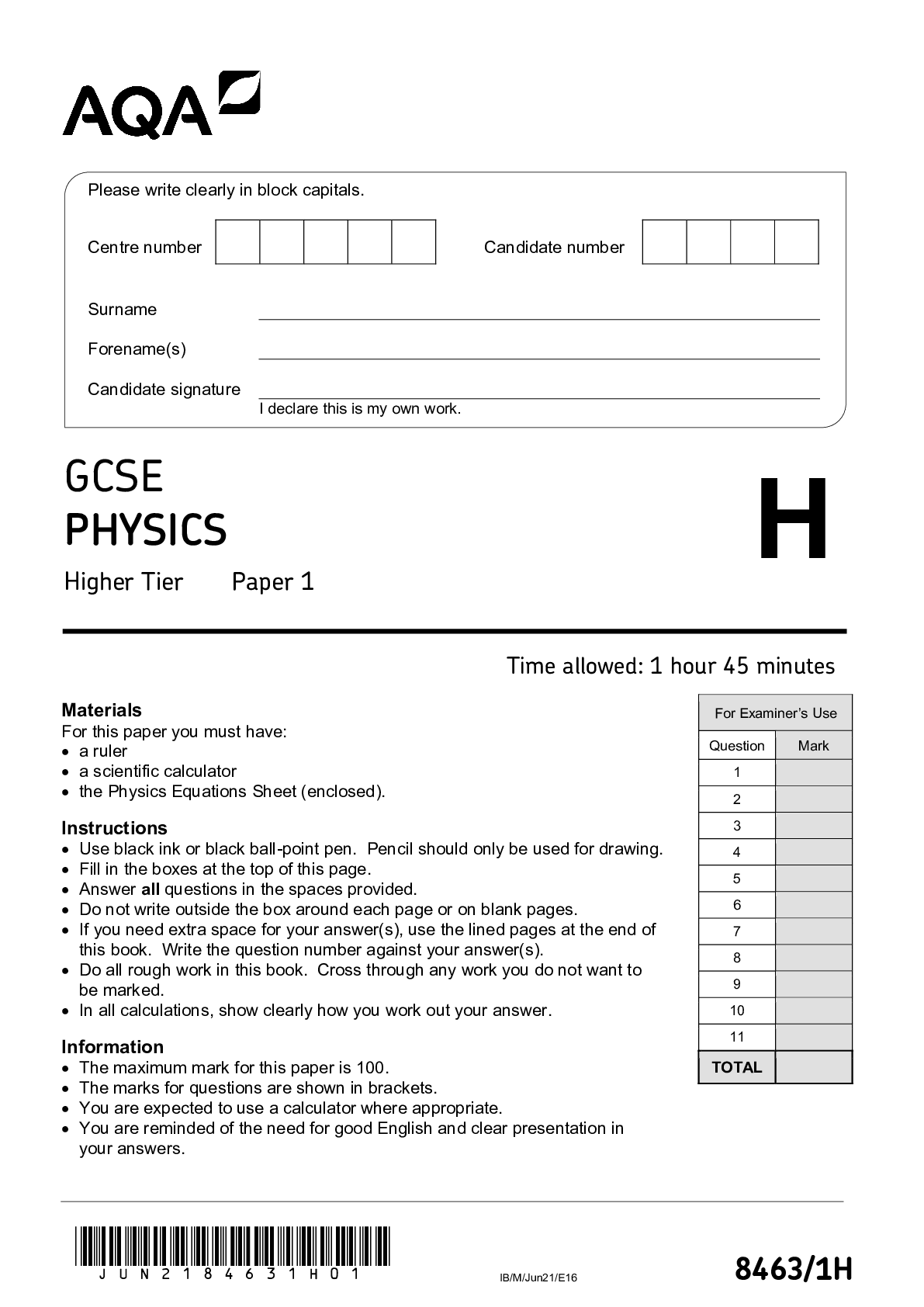
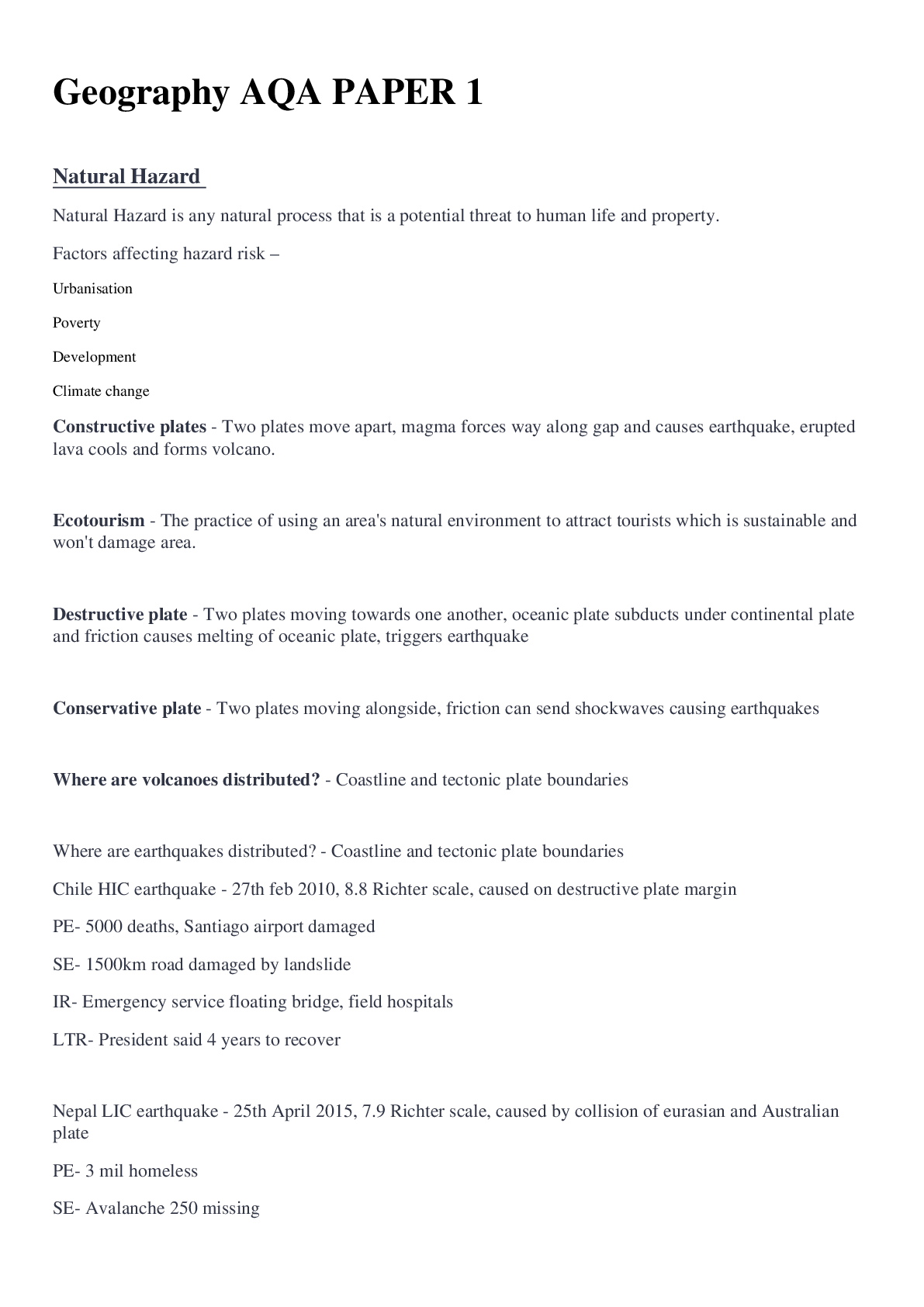
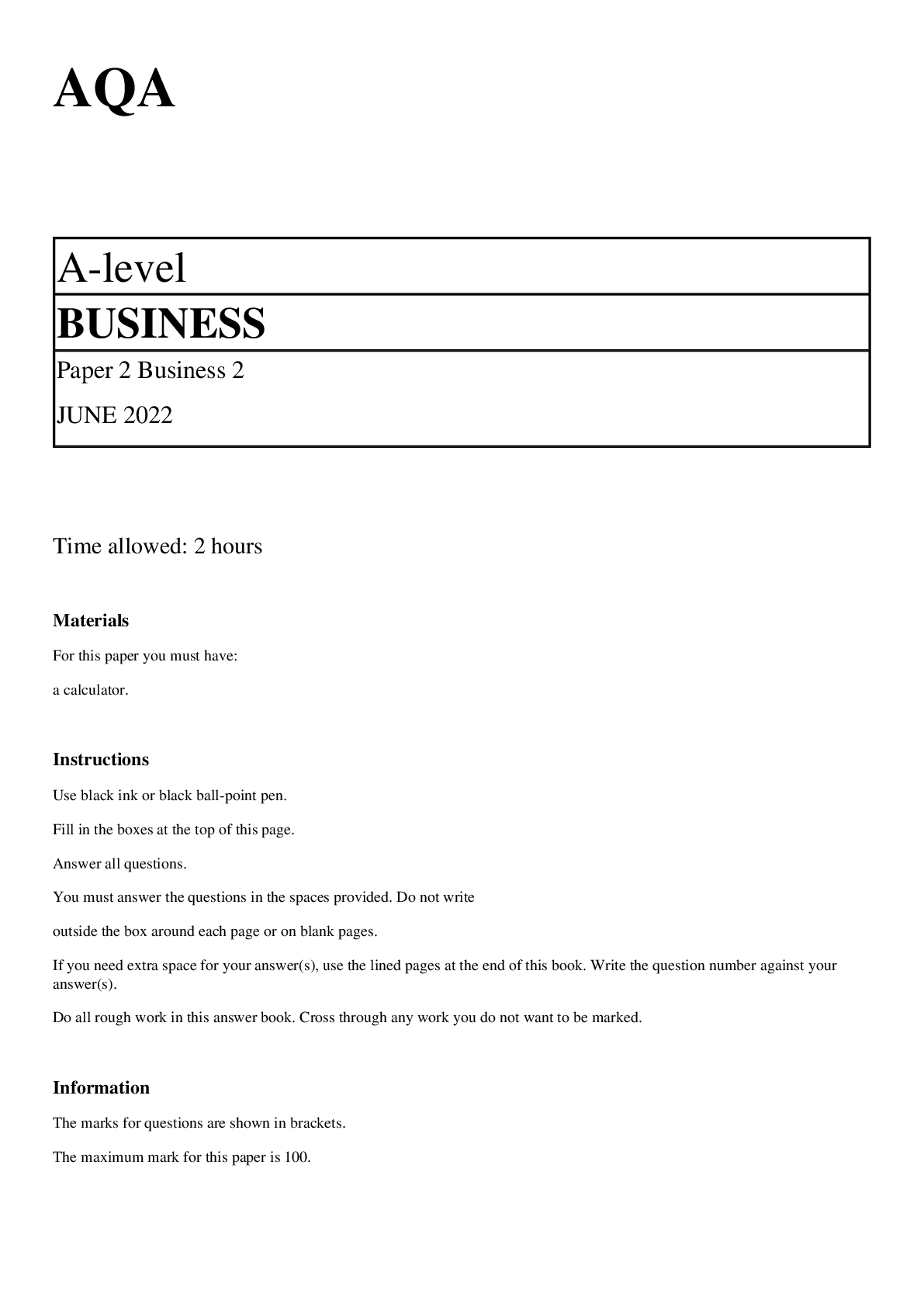
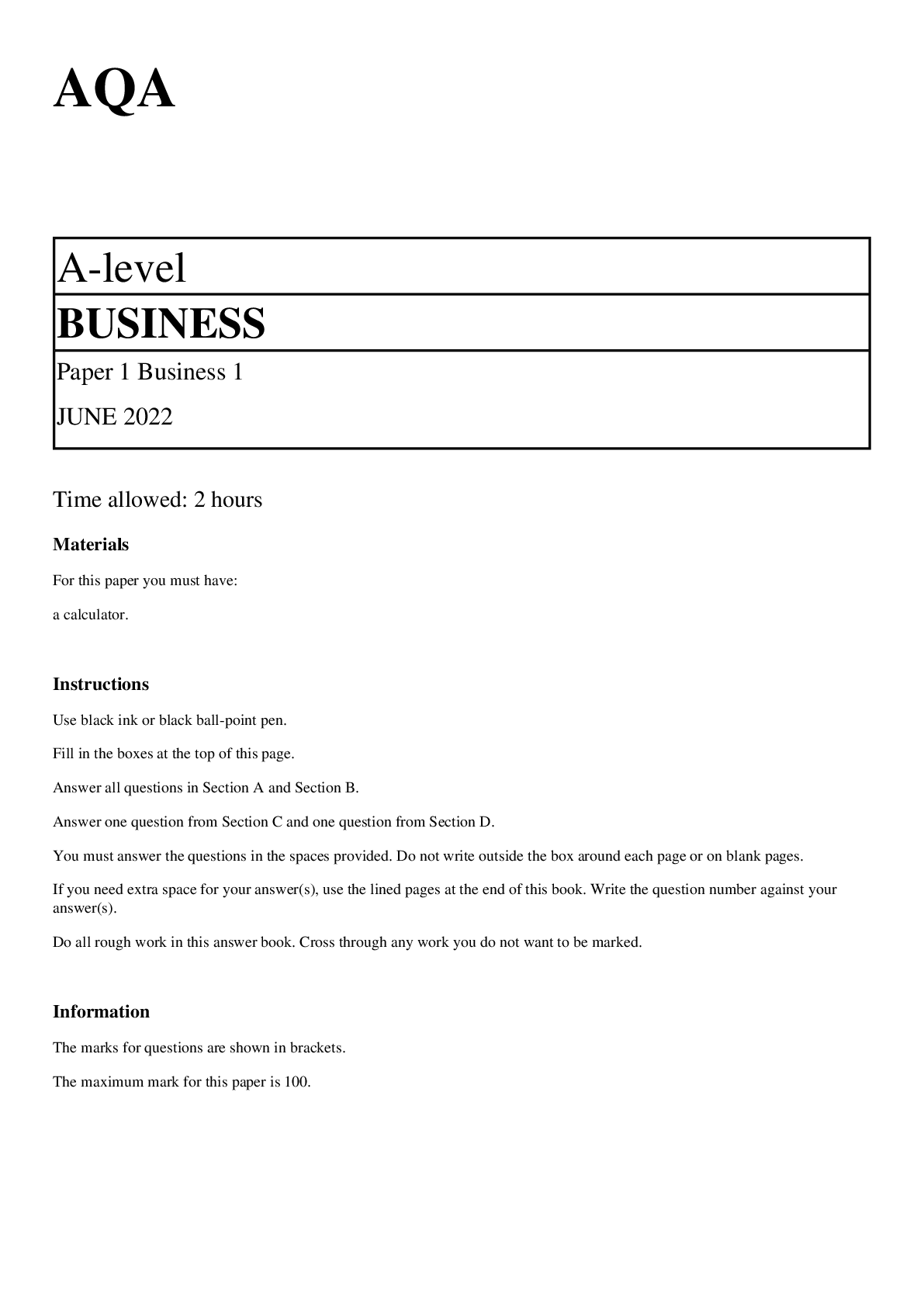

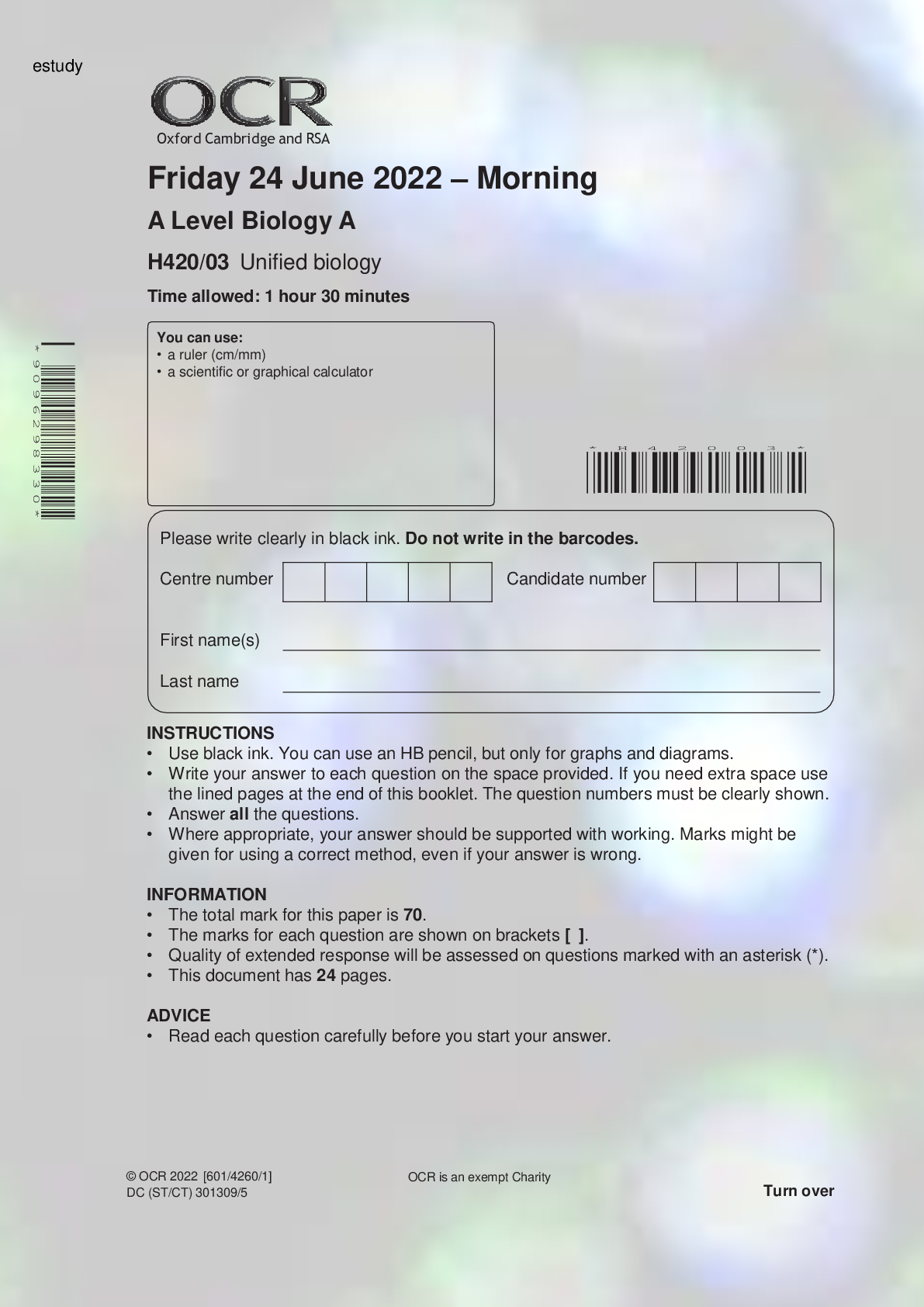
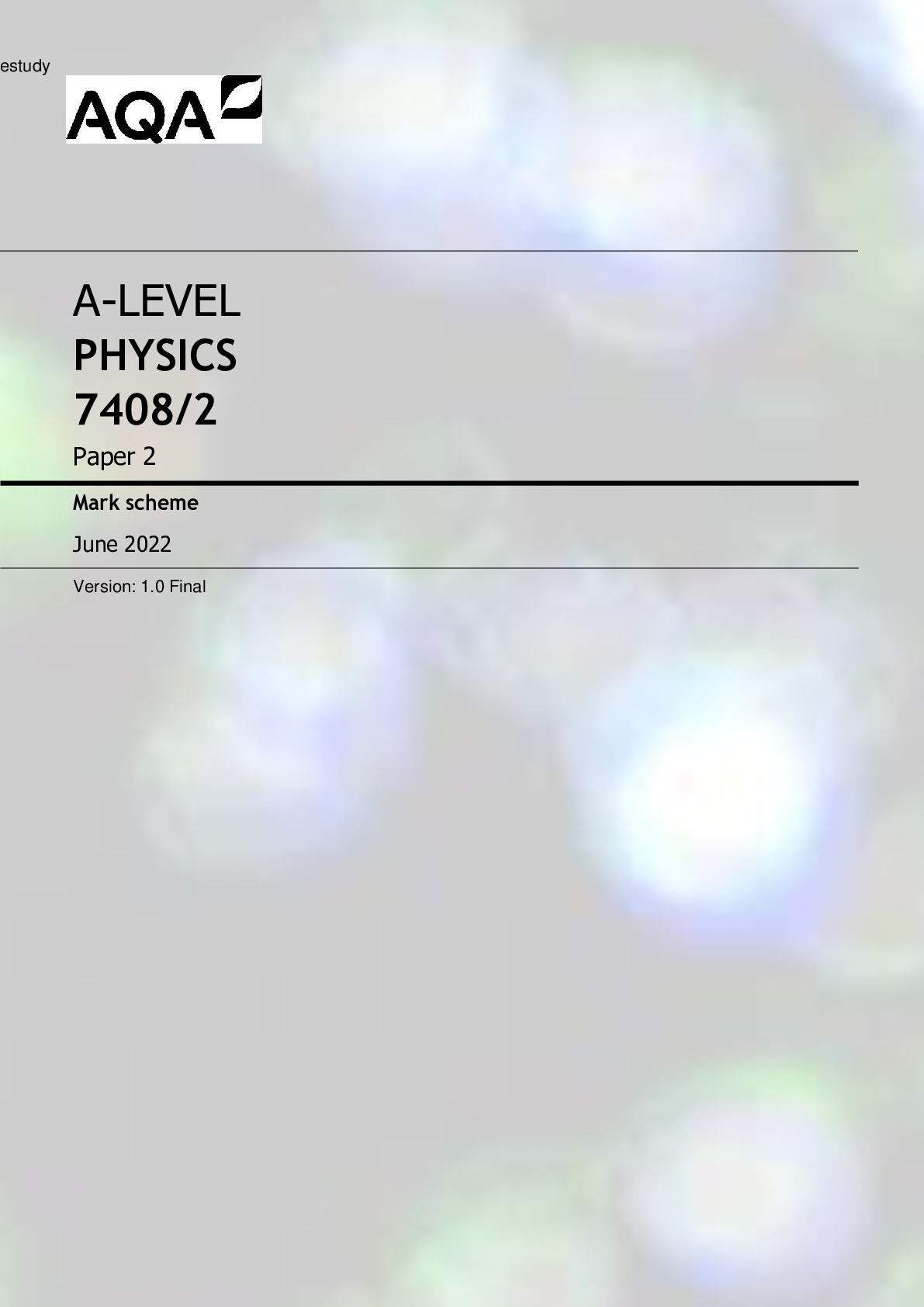
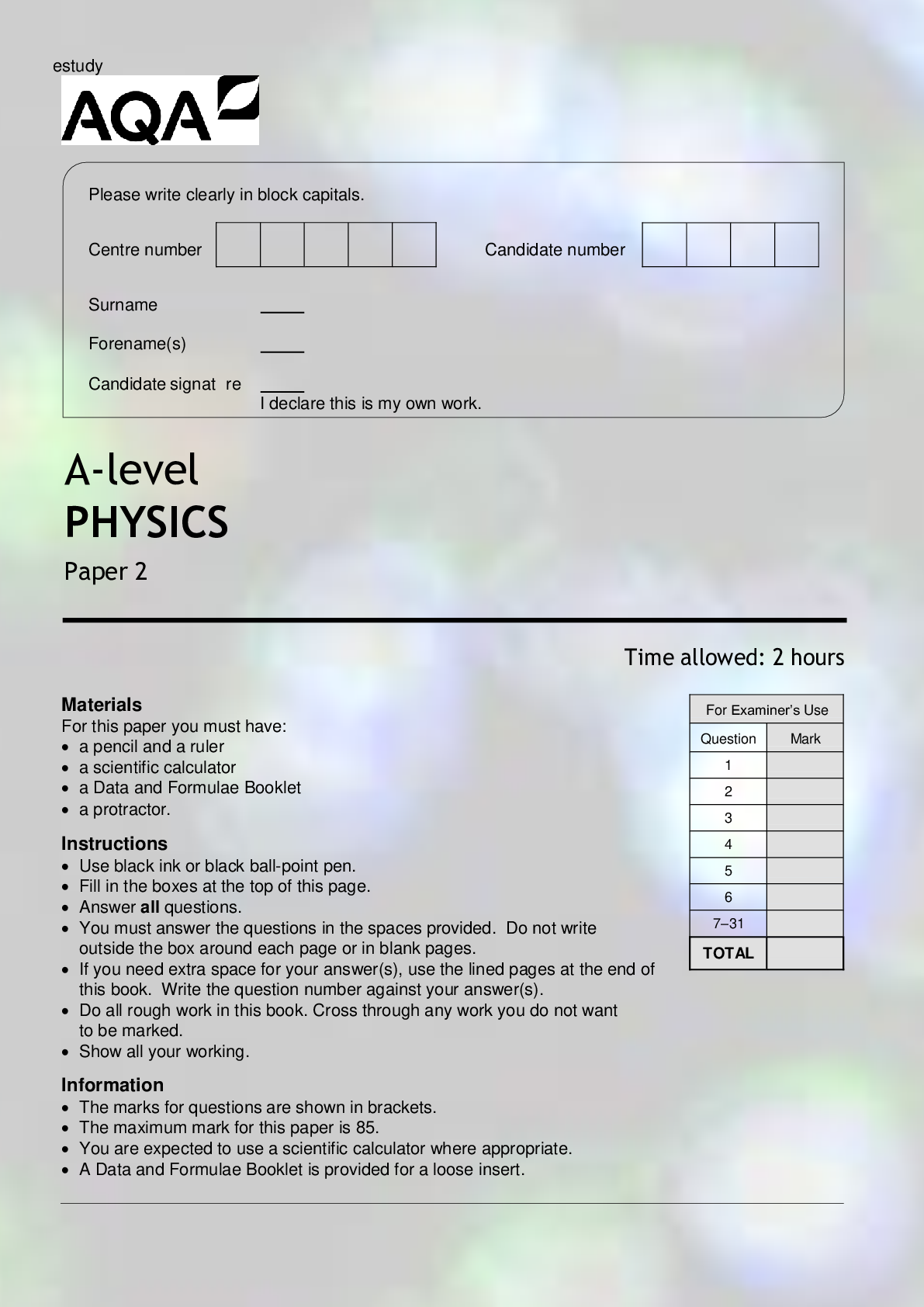

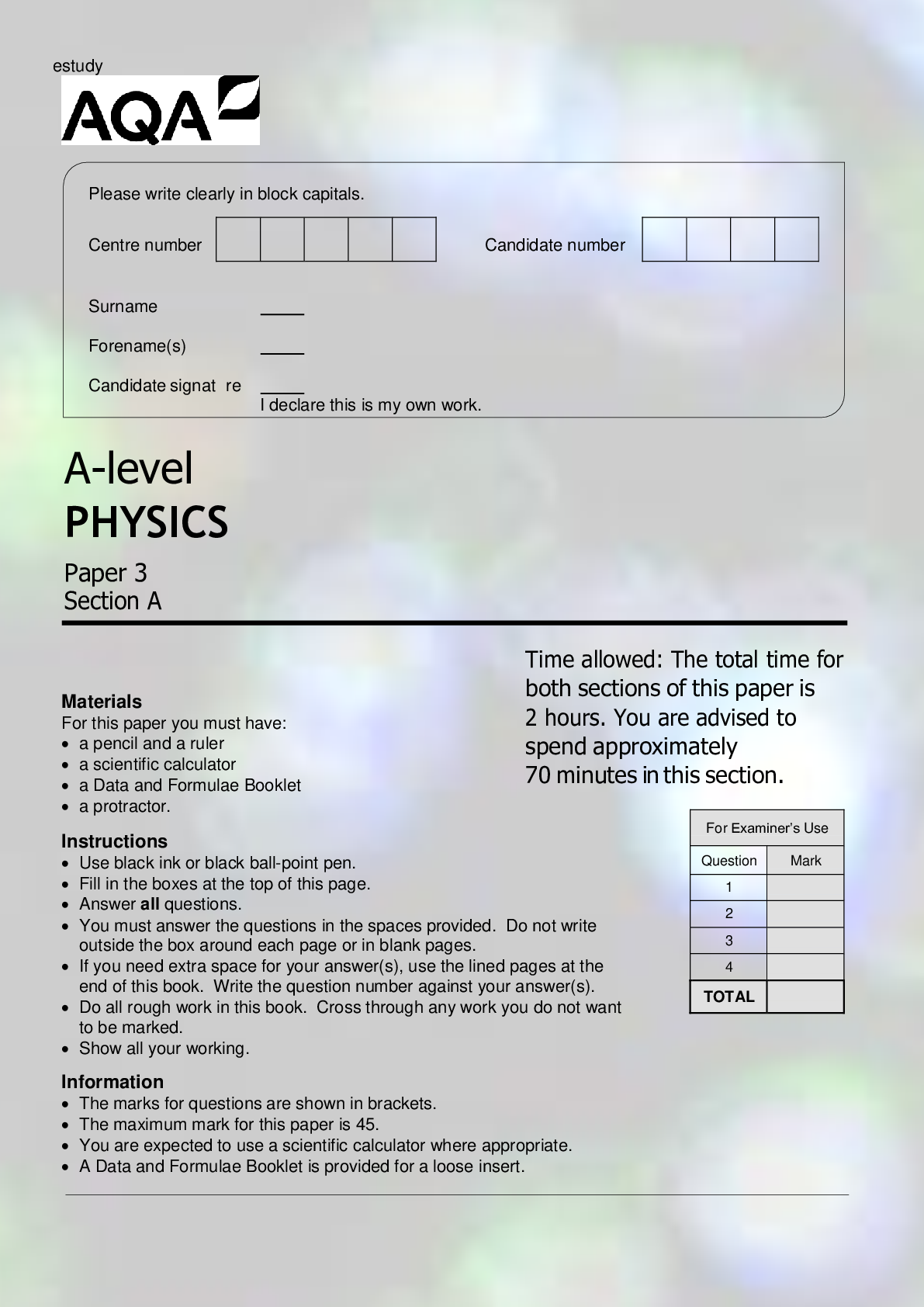
 - Paper 3 v1.png)

